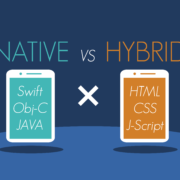Mobile App Development Mistakes: Impact Of Choosing The Wrong Developer
One of the costliest and most disastrous mobile app development mistakes you could make is to hire the wrong developer. Unfortunately, it’s an easy trap to fall into, given the plethora of app studios and freelancers vying for your projects. These entities will try to convince you they can complete your projects quickly and cost-effectively.
In some cases, this is true, yet it’s the more established and experienced developers who make good on these promises. You can check if they’re up to the task if they have a comprehensive portfolio of completed projects, positive customer feedback, and even acquired awards for their work. Established mobile app developers like NS804 tick all these boxes, as we’ve built a reputation for creating phenomenal apps for our clients and have the acclaim to prove it.
However, many developers are not in our position and are willing to oversell to secure client work. While we can all understand why they do this — it’s not in your best interests to work with them — and here’s why.
With freelance developers, many are in the process of learning fundamental skills and building up their portfolios. It’s common for newcomers to follow several Udemy app development courses and then set up an account on Fiverr to sell their services to unsuspecting clients. These individuals are neither professionals nor comprehend software development best practices.
Then, many overseas and fly-by-night studios offer competitive rates but have poor code quality and less-than-stellar support. The potential cost savings, if any, will lead to a frustrating and stressful app development experience. As a busy appreneur or business leader — you don’t want this — so avoid the following mobile app development mistakes listed below.
USE OUR APP COST CALCULATOR TO ESTIMATE THE COST TO BUILD YOUR APP!
Misunderstanding The App Industry Leads To Costly Mobile App Development Mistakes
About a decade ago, anyone with rudimentary coding skills could release a fun and quirky application in the app stores. The barrier of entry was so low that bedroom coders and startups released tons of apps at negligible cost. Of course, the quality of these apps was often questionable, but these early efforts helped developers earn money and stardom.
Most app users during that era were willing to put up with subpar apps since smartphones felt novel. Thus, they would download and try out the latest apps regularly, which created a near-endless demand for new apps. But the allure would fade since too many cruddy apps started ruining the user experience.
Eventually, users became picky about what apps to install and soon lost interest in low-quality or uninspired efforts. Smartphones and tablets also became more standardized, leading to a homogenized look, feel, and feature set among brands. While consumers never truly lost interest in smartphones and apps, they did lose some excitement. But this is not necessarily bad, as it signals a maturing market.
Sadly, many who wish to enter the app industry today haven’t fathomed these changes. They assume that the barrier of entry is still low and that a simple app developed in a few days or weeks could lead to vast fortunes.
They haven’t considered the increased demand for quality from users and the app stores. App development today requires testing, a better user experience (UX), and a greater focus on marketing. Then, there’s the high cost and effort associated with user acquisition (UA), which is unavoidable in today’s super competitive app marketplaces. Therefore, it’s better to partner with a reputable studio to help you navigate the app industry as it is today.
The App Stores Have Raised The Bar To Deter The Wrong Developers
Apple and Google don’t mess about when it comes to increasing trust with users. Both tech giants have taken bold and long-needed steps to diminish the number of low-quality apps from reaching the App Store and Google Play. They’ve long been aware of the glut of buggy, poorly developed, and opportunistic cash grabs filling their app stores.
Besides, many apps from unscrupulous developers also pose significant security risks, which have no place in app marketplaces. There’s always been a troubling amount of apps with malware and trojans available that unsuspecting users download onto their devices. Considering that many users do banking on their smartphones, these infected apps threaten their financial security and privacy.
One of the most detrimental mobile app development mistakes you could make is to hire such a developer on a lark. The damage to your reputation and business would be monumental, not to mention the legal action against you from users. The developer you hire may not even be malicious but overlooks potential security vulnerabilities that could lead to a similar outcome.
Due to these issues, Apple and Google have constantly improved security measures in their respective app stores, operating systems, and software development kits (SDKs). But they’ve also raised the bar on what they expect from developers with tighter regulations.
A good example is Google Play’s recent requirements for new Android app developers and those with personal accounts. These developers must have 20 or more people test their apps for at least two weeks before release. Understandably, many developers are venting their frustrations on Reddit and attempting to build test groups on Discord. But studios that have set up effective mobile app testing pipelines won’t face any issues with compliance.
Mobile App Development Mistakes Due To Unsuitable Tooling
You may work with a developer who uses no-code tools to build your app. The developer may insist on using such tools due to the increased speed they offer or because they lack programming experience. Either way, this isn’t necessarily a good idea, as no-code platforms often introduce performance bottlenecks.
While newer no-code app builders offer performance improvements, they still don’t produce apps that hold up to native-developed apps. And if your brand’s reputation hangs on the quality of your app, you shouldn’t cut corners. Work with a studio like NS804, renowned for building apps using native languages like Swift for iOS and Kotlin for Android.
The snappy performance, consistency, and native user interface (UI) make the additional cost and effort to produce native apps worthwhile. It’s also much easier to debug, test, and scale native-built apps than those made with no-code solutions.
One of the drawbacks of no-code solutions is that they’re rather esoteric and often made by smaller niche tool developers. Thus, documentation, code examples, and support are not on the same level as that provided by Apple and Google. It’s also harder to find tutorials and other training materials from third parties and online teaching platforms.
Should you want to update or scale your app at a later stage and be unable to work with the same developer, you’ll be out of luck. You will need to rewrite your app entirely from scratch, preferably in a native programming language, to avoid this same issue in the future. You can diminish the potential for mobile app development mistakes by ensuring the developer you hire uses the tooling, programming languages, and best practices recommended by Apple and Google.
The Wrong Developer Relies Heavily On ChatGPT
You’ve probably heard of ChatGPT and the impact of the artificial intelligence (AI) platform on programming and other disciplines. As a tool to help developers write boilerplate code and conjure up solutions, it’s a fantastic time saver. But as some kind of silver bullet for developing complex, robust, and mission-critical apps, the answer is not so straightforward.
While ChatGPT can make all types of apps, even complex ones, it won’t necessarily deliver the best and most solid apps. That partly depends on how well the developer understands ChatGPT’s large language model (LLM) and what prompts to enter. Then, the developer’s comprehension of the code that ChatGPT generates also comes into play.
If the developer can understand, tweak, and implement the code to fit the app project, the results will impress while cutting costs. But if the developer hasn’t taken the time to learn the nuances of ChatGPT, it will have the opposite effect. It’s also crucial that the developer has a good comprehension of the programming languages used in development, especially after the introduction of new updates and standards.
Nevertheless, the developer should have the skills to complete apps without ChatGPT or any other AI platform. An overreliance on these platforms isn’t ideal, as the developer must know and trust the codebase. As impressive as these AI platforms have become, they don’t always generate the right solutions.
So, never trust a developer who relies exclusively on these AI platforms to make your app. Or a developer who gives a single glance over the AI-generated code before inserting it into your app during production. And you certainly don’t want your banking or internal business app to have code that hasn’t been thoroughly inspected and tested.
Partnering With A Developer With Little Mobile App Development Experience
It’s not uncommon for developers to jump across industries for various reasons. For example, web developers often become disenchanted with building websites and decide to try their hand at mobile app development. They may assume this route will be more fun or earn them more money.
While web developers possess several skills used in mobile app development, it’s not always a smooth transition. App development is often more challenging than web development due to the differing hardware considerations and increasing requirements imposed by the app stores. The Android platform alone requires that developers test on a wide variety of devices, while web developers only need to test their websites on several browsers.
Web developers use languages like JavaScript, PHP, HTML, and CSS to build websites. While it’s possible to develop mobile apps with JavaScript, it’s not a first-class citizen and will seldom deliver the performance of native languages. Another shocker for web developers is the higher costs and more involved procedures associated with app development.
If you’re considering hiring a web developer who has recently transitioned to mobile app development, think twice before proceeding. You don’t want to work with someone likely to make common mobile app development mistakes. It’s also unlikely that this developer has enough expertise or understands the nuances between Android and iOS.
Instead, opt for an established app development studio that has dedicated Android and iOS developers on the team. You’ll have the peace of mind that your app builds will be equally good on both platforms. And when you need to roll out updates and patches, you have a team on hand to do the heavy lifting.
SCHEDULE A CONSULTATION WITH AN APP DEVELOPMENT EXPERT TO GET A CUSTOMIZED QUOTE!
Working With A Developer Lacking The Necessary Resources
Mobile app development is not cheap, so every competent developer must have the necessary resources to complete their projects. These resources include the funds, staff, office space, hardware, and development tools available to the developer. If the developer lacks these, they won’t be a good candidate for your next project.
But how can you tell if the developer has the necessary resources to tackle your project? It’s not possible to know every aspect of the developer’s business, but there are a few tell-tale signs you should look out for.
Check if the developer operates from an office that you can visit if you’re nearby. If you can stop by the developer’s premises to meet the team and discuss your project, that’s a positive sign. And if the team lead gives you a tour of the office and a rundown of the development process, that’s extra reassuring. A well-run and properly equipped development studio means you’re dealing with a credible developer.
But be sure to ask the developer what contingency plans they have in place should they fall behind schedule. Consider all scenarios that may cause delays, including outages, app store policy changes, API updates, staff turnover, testing issues, etc. Mobile app development mistakes often happen when teams haven’t prepared for unforeseen events or allocated the relevant resources to deal with these issues.
In Conclusion
Mobile app development mistakes often happen when dealing with inexperienced or incompetent developers. But you can avoid regretful outcomes by working with an experienced and established studio that has built a reputation for delivering high-quality apps. Contact NS804 today to learn why we’re one of the best app developers in Richmond, Charlotte, Denver, and beyond!










 https://unsplash.com/photos/person-holding-white-android-smartphone-in-white-shirt-q8U1YgBaRQk
https://unsplash.com/photos/person-holding-white-android-smartphone-in-white-shirt-q8U1YgBaRQk https://www.pexels.com/photo/apple-office-internet-ipad-38544/
https://www.pexels.com/photo/apple-office-internet-ipad-38544/
Leave a Reply
Want to join the discussion?Feel free to contribute!